Knee Replacement in Dubai
Understanding
Knee Replacement in Dubai
A Path to Pain-Free Living
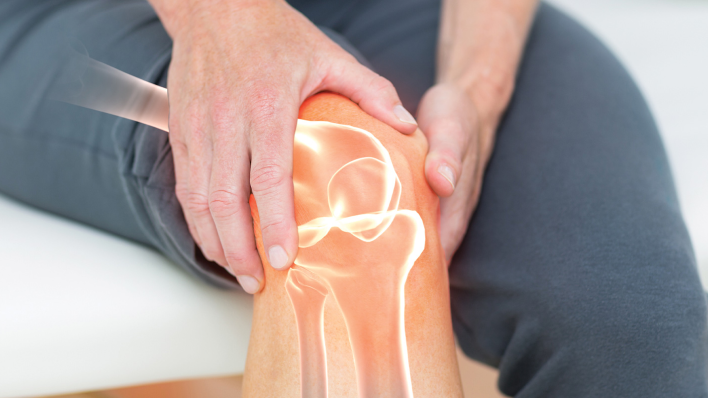
Knee pain can be frustrating, make everyday activities difficult, and affect your overall quality of life. Whether you’re dealing with chronic knee pain, knee osteoarthritis, or an injury, knee replacement in Dubai could be the solution you’ve been looking for.
Knee replacement surgery, also called knee arthroplasty, is a procedure that replaces the damaged parts of your knee joint to relieve pain and improve mobility. It’s usually recommended when other treatments, like medications or physical therapy, haven’t helped enough. The main goal of this surgery is to help you move more comfortably and enjoy a better quality of life.
During the procedure, the damaged cartilage and bone in your knee are removed and replaced with artificial components made from metal, high-quality plastics, and polymers. These prostheses are designed to move like a natural knee, allowing smoother, pain-free movement. Depending on your condition, you might have a total knee replacement (replacing the entire joint) or a partial knee replacement (replacing only the damaged part).
At Tarabichi Joint Care, we offer advanced options for knee replacement in Dubai, including both partial and total replacements, to help you get back to an active, pain-free lifestyle.
Anatomy of the Knee
- Bones: Femur, tibia, and patella form the knee joint.
- Ligaments: ACL, PCL, MCL, and LCL stabilize the knee.
- Menisci: Medial and lateral menisci absorb shock and improve stability.
- Muscles & Tendons: Quadriceps and hamstrings control movement; patellar tendon connects patella to tibia.
- Bursae: Fluid-filled sacs reduce friction in the joint.
- Joint Capsule & Synovium: Capsule encloses the joint; synovium produces lubricating fluid.
- Blood Supply & Nerves: Femoral and popliteal arteries supply blood; femoral, tibial, and peroneal nerves provide sensation and control.
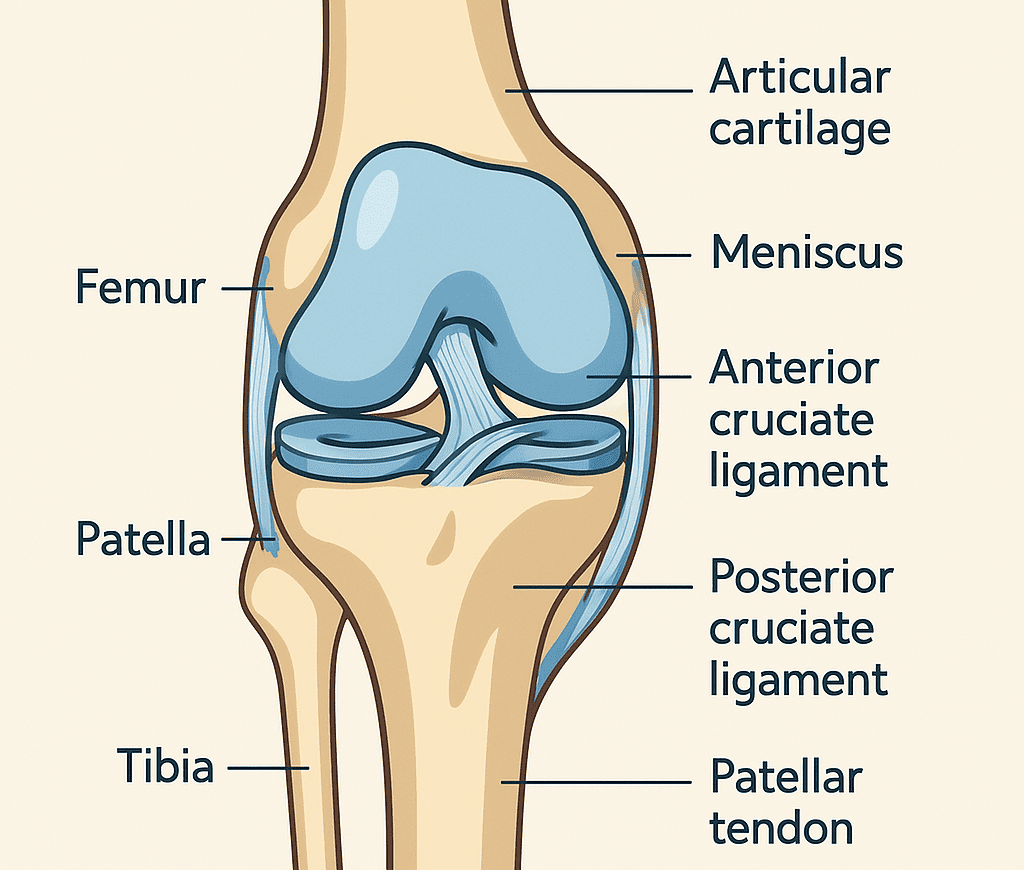
Common Causes of Knee Pain
Several factors can lead to knee pain, including:
- Osteoarthritis: This is a degenerative joint condition that often affects middle-aged and elderly individuals, causing cartilage breakdown.
- Rheumatoid Arthritis: A chronic inflammatory disorder that damages the knee's lining, causing pain, swelling, and deformity.
- Traumatic Arthritis: Occurs due to knee injuries that damage the cartilage and surrounding structures.
- Injuries: Ligament tears, meniscus injuries, or fractures causes persistent knee pain.

Read : What Are The Reasons Behind Knee Pain After Workout?
Discover the key reasons behind knee pain after workout. Learn about common causes, prevention tips, and effective treatments to keep your knees healthy and strong.
Types of Knee Replacement
There are several types of knee replacement procedures, each tailored to address specific knee conditions and patient needs.
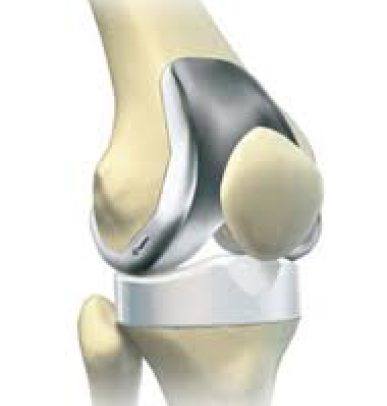
Total Knee Replacement (TKR)
This requires replacing the entire knee joint with prosthetics. It is ideal for those with severe joint damage, typically due to osteoarthritis or rheumatoid arthritis. During TKR, the surgeon removes the damaged cartilage and bone and resurfaces the knee joint with metal and plastic components. This procedure aims to restore normal knee function and provide long-term pain relief.
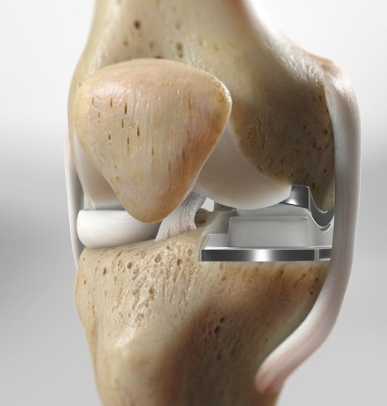
Partial Knee Replacement (PKR)
In cases where damage is confined to a part of the knee, a partial knee replacement can be done. It’s a less invasive procedure compared to TKR. PKR preserves more of the patient's natural knee structure and typically results in a quicker recovery compared to TKR.
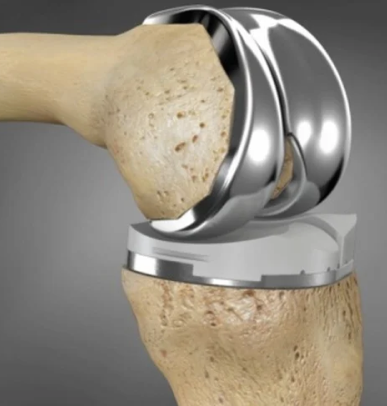
3D Printed Knee Replacement
This advanced technology allows for customized implants based on the patient’s anatomy, improving fit and function. Our innovative approach to 3D printed knee replacement in Dubai combines advanced technology with the expertise of our skilled orthopedic surgeons. These customized implants are meticulously crafted to fit your unique autonomy.
When is Knee Replacement Surgery Recommended?
Knee replacement surgery in Dubai is typically recommended for patients suffering from severe knee pain and functional limitations that significantly impact their daily activities. The most common condition leading to knee replacement surgery is osteoarthritis, a degenerative joint disease that causes the breakdown of cartilage in the knee joint. As the cartilage wears away, the bones rub against each other, causing pain, swelling, and stiffness.
Other conditions that may necessitate knee replacement surgery include rheumatoid arthritis, post-traumatic arthritis, and knee deformities. Rheumatoid arthritis is an autoimmune disease that causes inflammation of the synovial membrane surrounding the knee joint, leading to pain and joint damage. Post-traumatic arthritis occurs as a result of an injury to the knee, such as a fracture or ligament tear, which can lead to chronic pain and joint degeneration over time. Knee deformities, such as bowlegs or knock-knees, can also cause abnormal wear and tear on the joint, ultimately leading to the need for surgical intervention.
Patients who experience persistent knee pain that does not respond to conservative treatments, such as medications, physical therapy, or injections, may be candidates for knee replacement surgery. Additionally, individuals who have difficulty walking, climbing stairs, or performing everyday tasks due to knee pain and stiffness may benefit from the procedure. It is important to note that knee replacement surgery is typically considered a last resort when other treatment options have been exhausted and the patient’s quality of life is significantly affected.
- Severe pain that limits daily activities such as walking or climbing stairs.
- Pain that persists even at rest.
- Chronic knee inflammation and swelling that do not improve with medications.
- Knee deformities, such as bow-legged or knock-kneed appearance.
- Failure to respond to other treatments like physical therapy or medication.
Candidates for Knee Replacement
- People dealing with severe knee pain due to arthritis or injury.
- Severe pain that impacts daily activities and quality of life.
- Patients who have exhausted non-surgical treatment options.
- Those with progressive deformities of the knee joint.
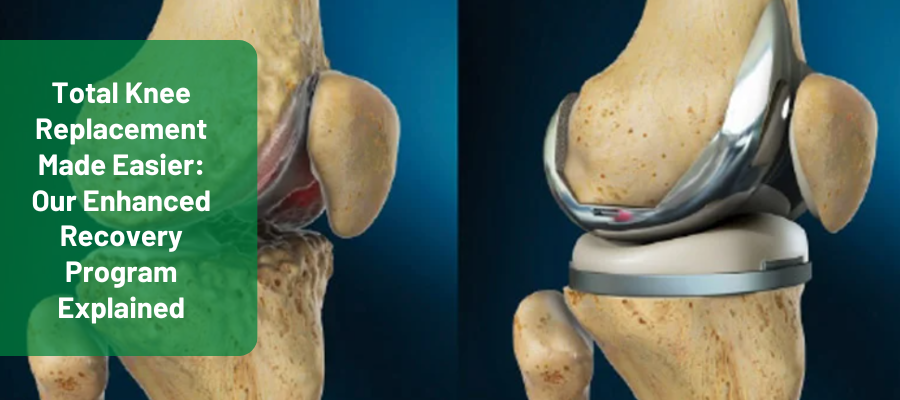
Read : Total Knee Replacement Made Easier: Our Enhanced Recovery Program Explained
Total knee replacement is a surgical procedure that involves replacing a damaged knee joint with an artificial one to relieve pain and restore function.
The Benefits of Knee Replacement in Dubai
Several types of arthritis can impact the knee joint, such as osteoarthritis, which is a degenerative joint disease common in older adults, and rheumatoid arthritis, which inflames the synovial membrane. Traumatic arthritis caused by injuries can also affect the knee.
- Pain Relief: Knee replacement can significantly reduce or even eliminate knee pain.
- Improved Mobility: After recovery, most patients experience better mobility and can return to activities they once enjoyed.
- Long-lasting Results: Modern knee prosthetics are designed to last many years, with some lasting up to 20 years.
- Enhanced Recovery Programs: At Tarabichi Joint Care, we incorporate Enhanced Recovery techniques to minimize discomfort and expedite your return to daily life.

Advanced Techniques in Knee Surgery
Tarabichi Joint Care is at the forefront of orthopedic treatment, offering state-of-the-art techniques, such as:
- 3D Printed Knee Replacement: Custom knee implants created using 3D printing technology for better fit and faster recovery.
- Enhanced Recovery (Same Day Knee Surgery): With minimally invasive methods, many patients can go home the same day after surgery.
- Minimally Invasive Knee Replacement: Smaller incisions lead to less tissue damage, faster recovery, and minimal pain.
What to Expect During the Knee Replacement Surgery?
Understanding the surgical process can help alleviate anxiety and prepare you for what to expect on the day of your knee replacement surgery. The procedure typically takes one to two hours, although the total time may vary depending on the complexity of the case and the specific surgical technique used.
During the surgery, the knee surgeon will make an incision over the knee to access the joint. The damaged cartilage and bone are removed, and the joint surfaces are prepared for the placement of the prosthetic components. The artificial components are then securely fixed to the bone using specialized cement or a press-fit technique. The surgeon will carefully align the components to ensure proper knee function and stability. Once the prosthesis is in place, the incision is closed with sutures or staples, and a sterile dressing is applied.
After the surgery, you will be taken to the recovery room, where you will be closely monitored as you wake up from anesthesia. Pain management is a critical aspect of the postoperative care, and you will receive medications to help control any discomfort. Once you are stable, you will be transferred to your hospital room to begin the initial phase of your recovery.
Deciding to get Knee Replacement in Dubai?
Deciding to undergo knee replacement surgery requires weighing the risks and benefits with the help of an expert.
Knee replacement in Dubai is a significant step towards improving your quality of life and regaining mobility. With Tarabichi Joint Care Centers advanced medical facilities, skilled orthopedic surgeons, and comprehensive care, you have access to top-notch treatment options for your knee condition.
Ultimately, knee replacement surgery is a collaborative effort between you and your healthcare providers. By making informed decisions and taking an active role in your care, you can achieve a successful surgery and a smoother recovery. Whether you are an expatriate or a local resident, Tarabichi Joint Care offers a supportive and advanced medical environment to help you on your journey to better knee health. Embrace the opportunity to reclaim your mobility and enjoy a higher quality of life with the support of Dubai’s world-class orthopedic care.
A consultation at Tarabichi Joint Care will provide you with a personalized assessment, discussing your condition and the most suitable options.
Seeking a second opinion knee surgeon can also help in making an informed decision.
FAQs - Knee Replacement in Dubai
The knee replacement procedure involves removing damaged bone and cartilage and replacing it with prosthetic components. The surgery lasts about 1-2 hours, and you will be under anesthesia during the procedure.
Possible complications include infection, blood clots, implant loosening, and knee stiffness. However, these risks are minimized with modern techniques. At Tarabichi Joint Care, we utilize advanced surgical methods to reduce these risks.
Before surgery, you will need a thorough medical assessment. Your doctor may ask you to stop certain medications and make adjustments in your home to facilitate easier movement during recovery.
Meet Our World-Class Team

Dr. Samih Tarabichi
American & Canadian Board-Certified Consultant Orthopedic Surgeon
For more than 35 years, Dr Tarabichi has been intensively involved in research in order to enhance joint replacement surgery and recovery process. He is internationally recognized for his innovations and has focused on teaching and training other surgeons from around the World. Dr. Tarabichi is renowned as a leading knee surgeon Dubai, committed to pushing the boundaries of orthopedic care.
- 7 International Patents
- 13400+ Publications Reviews
- 38+ Publications
- 501+ Scientific citations
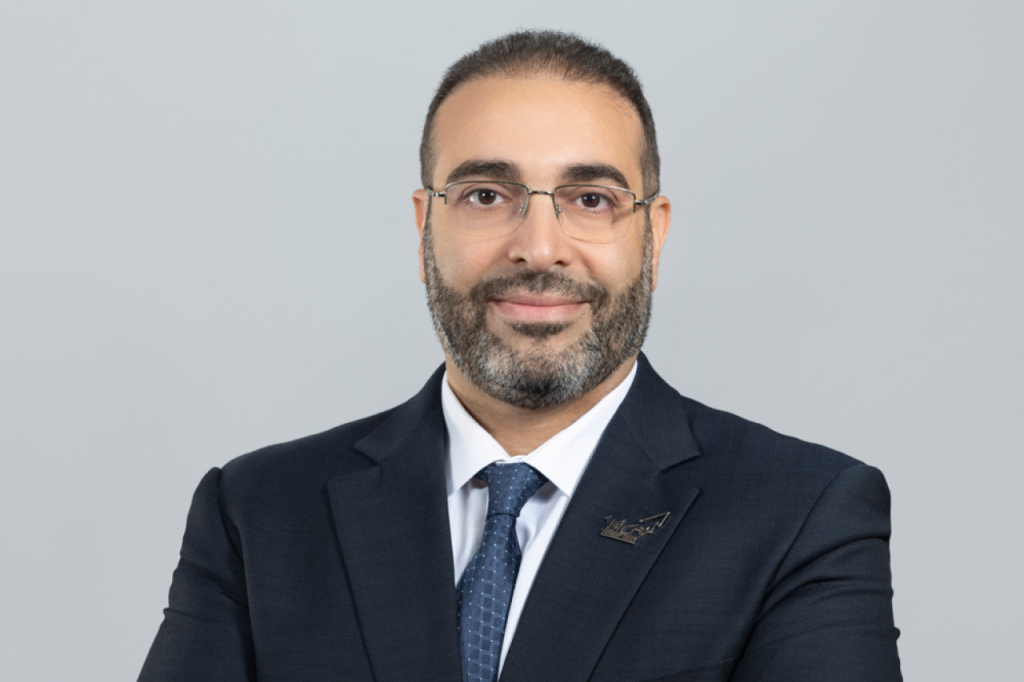
Dr. Mohamed Elfekky
Consultant Orthopaedic Surgeon
Specialized in Advanced Knee Surgeries
For more than 11 years, Dr. Mohammed Elfekky has brought unparalleled expertise in the field of orthopaedic surgery, particularly in knee-related procedures. With a focus on minimally invasive techniques, Dr. Elfekky ensures reduced pain and swelling with faster recovery and improved functionality after surgery. Dr. Elfekky is renowned as a leading orthopedic surgeon Dubai, committed to pushing the boundaries of orthopedic care.
- 4 International Patents
- Cutting-Edge Solutions
- MSc and MD in Orthopaedic Surgery
- Innovator in Painless Knee Surgery Technique
Why Choose
Tarabichi Joint Care for Knee Replacement

Integrity In Healthcare
Our core values of transparency, ethics, and open communication uphold your trust as the foundation of our commitment to integrity in healthcare.

Experienced & Expert Doctors
Our team of highly experienced and skilled doctors brings a wealth of expertise to every medical specialty.

Patient-Centered Approach
Your health and comfort are at the forefront of everything we do. We believe in empowering our patients with knowledge.

State-of-the-Art Facilities
Our facilities are equipped with cutting-edge technology and state-of-the-art facilities to deliver the most advanced medical treatments.

Enhanced Recovery Procedures
Revolutionizing same-day knee replacement with advanced pain management, ensuring less pain and faster recovery.

360 Degree Services
(Pre - Post Surgery)
Offering full support throughout your journey, from pre-surgery planning to post-surgery care, with focus for a seamless experience.
